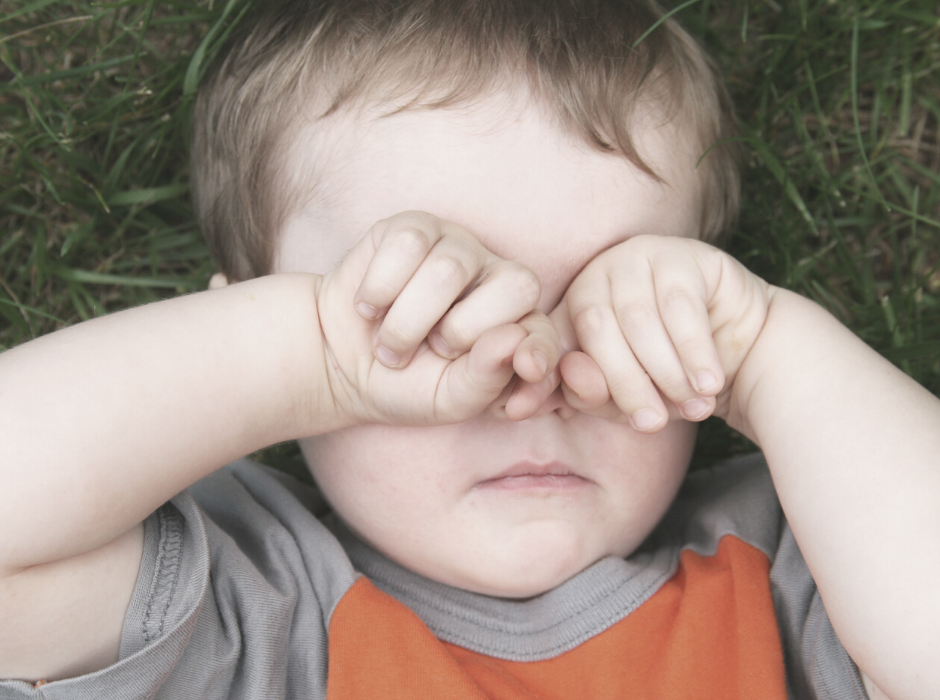Snoring Babies: Cute or Concerning?
When I started writing this blog, I wanted to tell you all about some posts I have seen on social media about how cute it is when babies snore like freight trains. However, I quickly decided I did not want to come off as if I am shaming these moms because I am not. I agree, snoring babies are cute, but this should also be concerning.
When I start working with a new client, one of the very first questions I ask is, "does your baby snore or mouth breathe?" Typically, the answer is “no”, or “sometimes if the baby is congested." These answers do not concern me. The reason that I ask this question is to save those moms who answer “yes” their time and money.
If a baby is snoring or mouth breathing regularly, this could be causing most of their sleep problems and it should be checked out by a pediatrician before starting any type of sleep training. So, what is the big deal? Well, snoring and mouth breathing in children while sleeping are symptoms of pediatric sleep apnea.
Types of Sleep Apnea
There are two types of sleep apnea, obstructive sleep apnea, and central sleep apnea. Obstructive sleep apnea occurs when the sleeping person tries to breathe, but their airway is blocked or constricted. Central sleep apnea occurs when the sleeping person lacks the effort to breathe, and stops taking breaths. Obstructive sleep apnea is significantly more common than central sleep apnea. According to the National Institute of Health (NIH), it is estimated that between 1 and 5% of children have been diagnosed with obstructive sleep apnea. This statistic gives the appearance that sleep apnea in children is rare, however, it is also commonly under-diagnosed.
Why Sleep Apnea is Concerning
You may be asking yourself “why does sleep apnea matter, and how does that even affect sleep?" Well to answer this question, we have to understand what is happening during these apnea events.
When children are awake, their muscles keep their airways and breathing passages wide open for the most part. However, when they go to sleep, those muscles relax, and the airways narrow. When they breathe, air passes through their airways and causes the relaxed airway to vibrate and create the noise we call snoring. However, in some cases, a child’s airway may completely close, and their body will no longer receive the oxygen it needs. When this happens, and their body goes so long without air, their brain will alarm their body to wake up and breathe. This waking up causes an abrupt end to their sleep cycle. Several of these in one night can cause severe sleep deprivation, and the result is a baby or child with significant sleep debt and all the symptoms that go along with that.
If sleep apnea goes undiagnosed, untreated, or uncontrolled, those with it can become vulnerable to many other long-term health risks. These risks include depression, memory loss, asthma, weakened immune system, high blood sugar/diabetes, liver problems, and heart problems. So, you must understand the symptoms of sleep apnea and take them seriously.
Symptoms to Watch
Let’s dive a bit deeper into what symptoms you should watch for in addition to snoring or mouth breathing. Of course, every child is different, and these symptoms together do not necessarily mean a diagnosis of sleep apnea is imminent. However, if you are observing these symptoms in your baby or child, you should have them examined by their pediatrician or health care provider. Some of these additional symptoms include…
- Pauses in breathing while sleeping
- Choking in sleep
- Snorting while sleeping
- Gasping for air
- Restlessness during sleep
- Waking with a dry mouth/throat
- Daytime sleepiness or irritability
- Hyperactivity
- Behavioral Problems
- Bed Wetting
- Sleep Walking
- Need for naps past the napping age
- Trouble Focusing
- Waking in the Morning feeling unrested and tired
Other Risk Factors
Other risk factors increase a baby or a child’s chances of developing sleep apnea. These are…
- A family history of sleep apnea
- Being overweight
- Down syndrome
- Cerebral palsy
- Small jaw or overbite
- Nasal allergies
- Being around adults who smoke
What to Do
It is important to remember that not all children who snore (or have these other symptoms/risk factors) will have sleep apnea, and likewise, not all children with sleep apnea will snore or have these symptoms. The best way you can protect your child is to ensure they are going to their well-child checks with their pediatrician and bring up any concerns you may have. Be sure to write these down and take them with you to their check-up so that you can cover them all with your child’s pediatrician.
If your baby or child struggles with sleep and you are considering sleep training, please start by speaking with your pediatrician to rule out any underlying causes of your child’s sleep difficulties. Once your pediatrician gives you the all-clear, I am here to help you get your little one dreaming! And as always, if you have questions, don’t hesitate to ask!
References
Children and Sleep Apnea. Sleep Foundation. (2020, August 28). https://www.sleepfoundation.org/sleep-apnea/children-and-sleep- apnea.
Mayo Foundation for Medical Education and Research. (2019, May 21). What happens during obstructive sleep apnea?Mayo Clinic. https://www.mayoclinic.org/diseases-conditions/obstructive-sleep-apnea/multimedia/obstructive-sleep-apnea/vid-20084717.
Mayo Foundation for Medical Education and Research. (2020, October 3). Pediatric obstructive sleep apnea. Mayo Clinic. https://www.mayoclinic.org/diseases-conditions/pediatric-sleep-apnea/symptoms-causes/syc-20376196.
Obstructive Sleep Apnea in Children. Cedars Sinai. (n.d.). https://www.cedars-sinai.org/health-library/diseases-and-conditions---pediatrics/o/obstructive-sleep-apnea-in-children.html.
Watson, S. (2019, July 5). The Effects of Sleep Apnea on the Body. Healthline. Medically Reviewed by Elaine K. Luo, M.D. https://www.healthline.com/health/sleep-apnea/effects-on-body.



